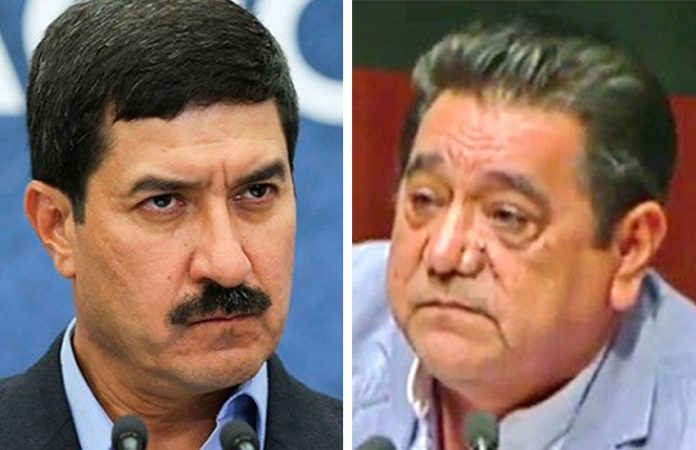A battle is brewing between the incoming federal government and state governors over super-delegates, the powerful federal officials who will be responsible for coordinating and implementing government programs and plans at the state level.
The Senate, where a coalition led by president-elect López Obrador’s Morena party has a majority, this week approved amendments to the Organic Law of Federal Public Administration, which formally established the role of the so-called super-delegates.
But the move triggered a backlash from opposition lawmakers and governors, who argue that it is intended to subordinate state governments to federal authority.
Senators from the opposition National Action Party (PAN) and Democratic Revolution Party (PRD) said they would pursue legal action in the Supreme Court against the legislative reform, arguing that the super-delegate system is unconstitutional, an attack on federalism and seeks to turn governors into nothing more than figureheads.
“We don’t want a centralized government and a retrograde presidential system,” said PAN Senator Mauricio Kuri.
Institutional Revolutionary Party (PRI) Senator and former interior secretary Miguel Ángel Osorio Chong also added his voice to the criticism, insinuating that the incoming government’s motivation was political rather than practical.
“The super-delegate idea gives the impression of really being a factory for pre-candidates,” he said.
However, López Obrador and his team argue that the super-delegate system will simplify the relationship between the federal government and the states because it will significantly reduce the number of people charged with conducting it.
There are currently 2,300 delegations, sub-delegations and offices of various federal departments that function as a link between federal and state authorities.
But in a letter directed to López Obrador, 12 PAN governors argued that their role would be reduced to one of “mere guests” under a super-delegate system, particularly with regard to public security.
Chihuahua Governor Javier Corral said he wouldn’t accept the imposition of the new system nor would he allow state security forces to be subordinated to the national guard that López Obrador has proposed creating.
Governors are responsible for public security in their states, he said, asserting that the soon-to-be president can expect staunch opposition if he changes that.
“We’re not going to let them walk all over us in this way,” Corral said.
Querétaro Governor Francisco Domínguez also played hardball, saying the super-delegate assigned to the state he leads will not be invited to form part of the government’s security team.
Amid the criticism came a warning from a Morena party senator that the Senate could strip powers from states that don’t respect the new government’s plans and policy agenda. But that only served to further fan the flames of discontent.
“No governor of any state will be able to oppose the constitutional mandate,” Félix Salgado Macedonio said.
“. . . It’s necessary to remind the [state] leaders that here, in the Senate, is where the viability of laws is discussed and analyzed and that we are the guarantors of compliance with them. Any governor who doesn’t agree to the constitutional guidelines could lose their powers,” he added.
Salgado contended that governors’ opposition to the super-delegate plan is based on the fact that their practice of putting friends and relatives into state-based federal agencies will end.
Miguel Ángel Mancera, PRD leader in the Senate and former Mexico City mayor, urged Salgado not to fall into “the temptation to abuse power,” adding that “these types of threats,” especially as a new administration prepares to take office, are not helpful.
PAN lawmakers said bluntly that “threats” of the kind made by Salgado are “unacceptable.”
Seeking to placate the López Obrador government’s political opponents, future interior secretary Olga Sánchez Cordero pledged that the rule of law would be respected and that state powers would not be undermined.
“I believe that if someone is going to be respectful of the rule of law, of sovereignty and legality, it’s going to be López Obrador. In no way is he going to compromise autonomy, the sovereignty of the states, municipalities or public powers – in no way – and I say that to you categorically,” she said.
“I would like to speak to the governors to explain to them that . . . the national guard is not going to be subordinated to the delegates, they are not going to manage it, they’ll be there [in the states] for social programs,” Sánchez added.
After casting a vote in today’s public consultation on the Maya train, López Obrador said he would speak to the governors about the super-delegate system but warned that he would not be pressured into caving in to their demands.
“There is going to be dialogue [with the governors] but I’m not going to be anyone’s hostage. I’m not going to allow myself to be blackmailed by anyone. I only have one master and one mandate, the [master is the] people and the mandate is to end corruption.”
Source: Milenio (sp), Animal Político (sp), El Universal (sp)
